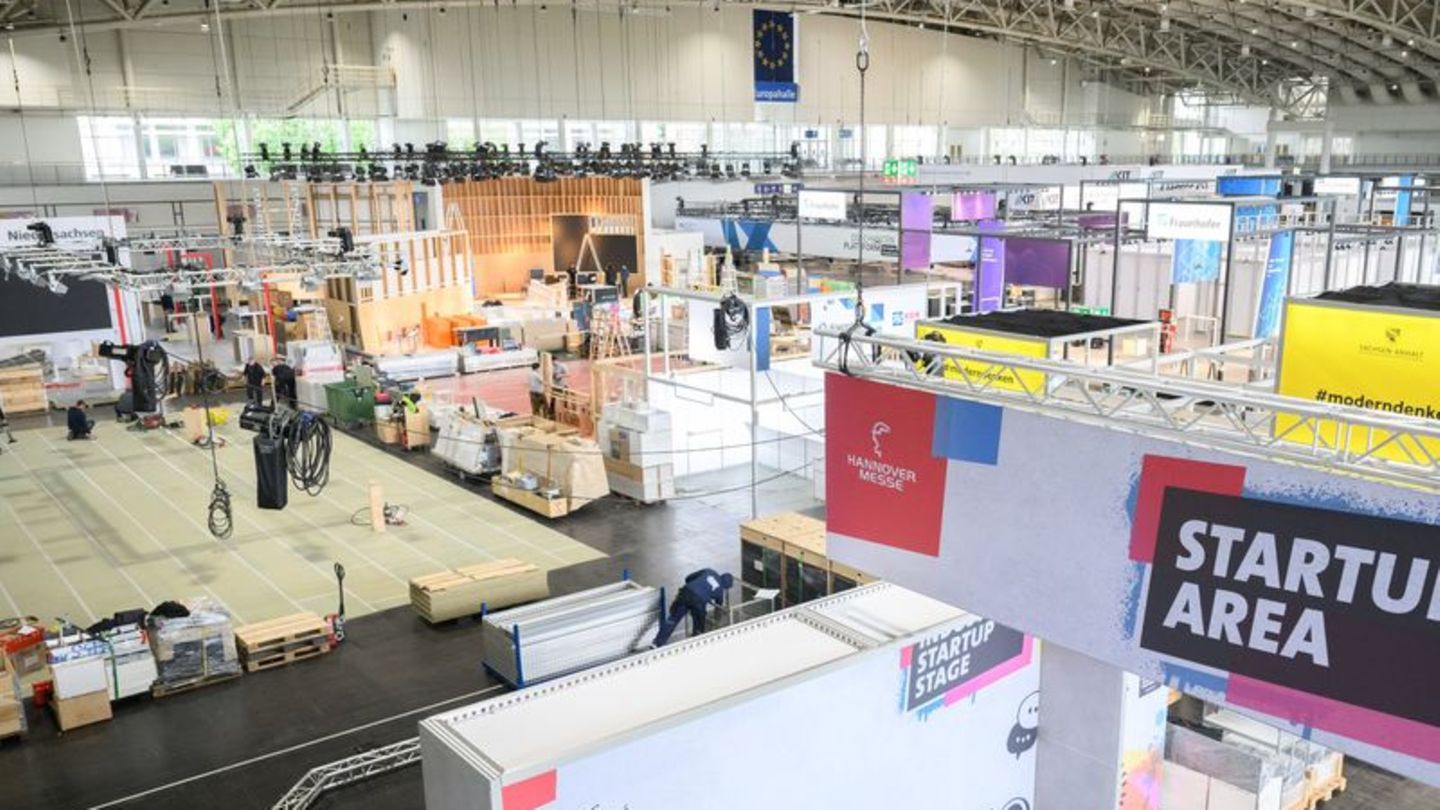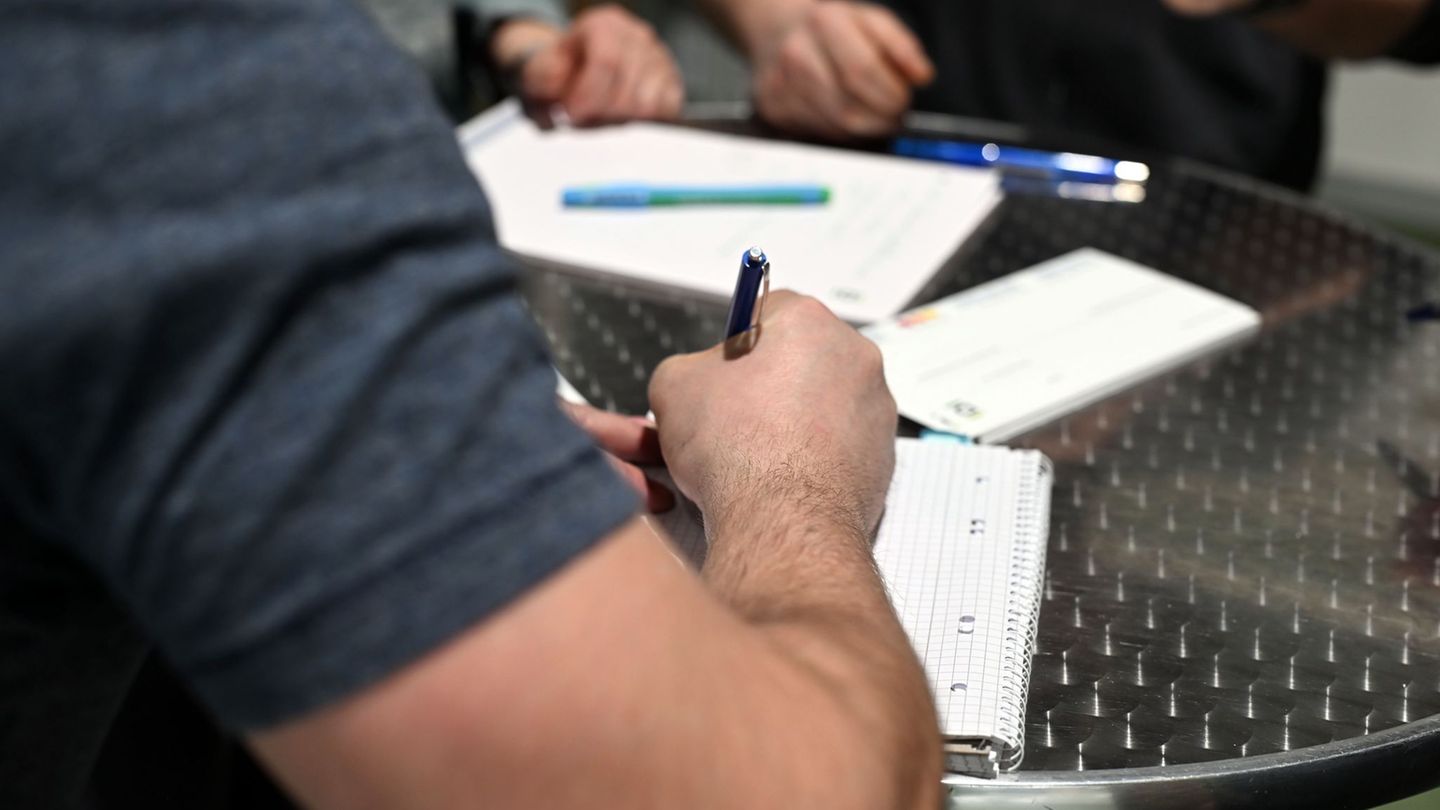Artificial intelligence is increasingly finding its way into industry. Companies expect new growth from this. The Hannover Fair is intended to show what is already possible.
Some ideas for clever AI solutions come from the kitchen at home. If something overflows on the ceramic hob or you accidentally put something on the control panel, the sensor makes a loud beep. “This can be significantly improved with AI,” believes Gunther Kegel, who supplies sensors for industry with his company Pepperl and Fuchs from Mannheim.
“The sensor learns to distinguish moisture that has spilled over from a finger.” And at some point you might not even need your finger anymore. “In the future, we may be able to operate the ceramic hob via voice control,” says Kegel. Then you just have to say: “Plate one, level eight.”
The talking stove is still a thing of the future. But a lot of things are already possible with AI today. And development is progressing rapidly. “In the future, AI will be able to compile manuals from existing data and compare finished products with the previously planned specification,” says Kegel, who is also the honorary president of the Association of the Electrical and Digital Industry (ZVEI). “The reading and processing of invoices, incoming letters and customer complaints can also be automated using AI.” In the end, someone will still take a look at it. “The machine can handle routines and tiring tasks.” This will significantly increase efficiency.
“ChatGPT for engineers”
What is already possible in industry today will also be on display at the Hannover Messe (April 22nd to 26th) from Monday: machines that automatically recognize errors, robots that learn independently, systems that determine for themselves when errors occur is the best date for your own maintenance. Siemens is showing its developed “Industrial Copilot”, which was developed together with Microsoft. A kind of “ChatGPT for engineers” with which industrial robots can be controlled by voice, as trade fair boss Jochen Köckler puts it in a nutshell, alluding to the successful chatbot.
And contrary to what was believed just a few years ago, such solutions are now ready for use, says Köckler, who made AI one of the main topics at the world’s largest industrial show this year. “The speed at which AI solutions are finding their way into industry is breathtaking,” he says. “The pace is enormous, the impact will be huge.” This also offers the industry the opportunity to continue to grow despite the labor shortage. And ChatGPT in particular shows what power AI can develop. “If I transfer this to industry, it will have an impact that cannot yet be estimated today.”
Billion-dollar boost expected for German industry
Much of this is already a reality today, reports ZVEI boss Kegel. In his company, for example, he has been using AI in sensors for years, for example in image processing and signal evaluation from the more complex sensors. The camera sensor learns to reliably recognize a screw without having to first store all conceivable screw heads as a template. And he already uses AI when recording incoming invoices or in automatic ordering.
“Through generative AI and voice-controlled applications such as ChatGPT, the use of AI is gaining further momentum,” Kegel is convinced. Above all, its use in products offers huge opportunities for German industry. “If we do this skillfully, it can become a unique selling point with which German and European industry can score points internationally.”
According to a study carried out by the research institute IW Consult on behalf of Google, AI could give German industry a boost worth billions: This could increase gross value added by almost eight percent. That would correspond to 56 billion euros in the manufacturing sector alone. For the entire economy, the potential value creation using AI was estimated at 330 billion euros.
Concern about EU regulation
But Europe must be careful not to squander this opportunity through too strict rules, warns Kegel. It is true that some improvements have been made in the EU’s recently passed AI law, which is due to take full effect in around two years. However, it is still not clear what should really be classified as risk AI in the end. “If the design is strict, even a simple ceramic hob that uses an AI component for the sensor in the control panel becomes a critical, high-risk application,” warns Kegel. “That cannot be in accordance with the directive.” This must now be prevented when it is implemented into German law. “Everything can’t be lumped together. Otherwise regulation will become a massive brake on innovation.”
Source: Stern




